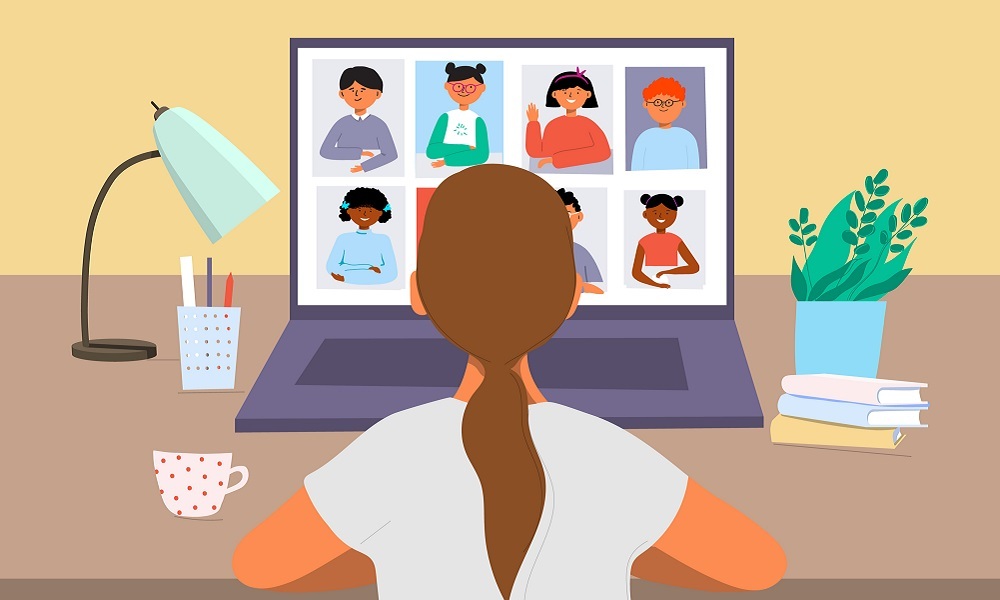Teachers, school leaders and support staff have been on the 'frontline' of the COVID-19 pandemic, supporting students and their families to transition to remote learning and the challenges that have come along with it.
This week we marked RUOK? Day, a national day of action in Australia dedicated to reminding everyone that every day is the day to ask, ‘Are you OK?’ In today’s article, we sit down with Professor Alison Calear from the Centre for Mental Health Research at ANU to discuss some of the mental health impacts of being in a caregiving role, why stress and burnout are so detrimental to a person’s health, and how we can do more to support teachers during this time.
Long before COVID-19 disrupted schools, teachers were already at risk of burnout. But, as cases surge across the world and children spend less time in classrooms than ever before, teachers, school leaders and support staff have seen a dramatic increase in their workload.
Research shows that the pandemic has only further exacerbated the stresses facing educators. As lessons continue to be delivered online and teachers help students and their families adjust to this ‘new normal’, they may have found that their own wellbeing has begun to suffer. Professor Alison Calear says that burnout is a big risk in any caregiving role, because when you’re focused on helping others, it can result in limited self-care.
‘You’re spending so much time supporting other people by preparing education materials, answering emails, supporting parents that quickly your day is filled and teachers don’t have any time for self-care,’ she tells Wellbeing by Teacher.
This self-care includes having time to exercise, eat well, get enough sleep, catch up with friends and family, or just generally relaxing. Calear also says that during this time, some teachers may be experiencing worry or anxiety around the bigger impacts the pandemic may be having on the families and children they work with.
The impact of stress and burnout
Calear explains that burnout is described as not having the capacity to engage in activities that you used to be able to engage in. For some, this could result in finding it harder to engage with students or with families, finding it more difficult to complete a task that you may have previously found easy, or just not having the energy, focus or concentration to get your work done.
‘I think one of the genuine mental health impacts for teachers is burnout. There is a genuine risk that some teachers will leave the profession after this because they don’t get the joy out of teaching that they used to because there’s so much strain on them to take on multiple roles and maybe roles that they don’t have experience in,’ Calear shares.
‘A lot of teachers don’t have experience in teaching distance education, so this requires much more time and effort on their part to prepare a classroom session than it would have done if they were doing face-to-face teaching. It’s taking up more time, which is time that they’re not spending doing other things that they might find enjoyable, like being able to relax in the afternoon.’
Calear also notes that there is a general anxiety that is being felt across the community at present, all relating to the pandemic itself.
‘What’s going to happen? How long is this going to last? How long am I going to be teaching this way? But also, those anxieties around particular children about how is this pandemic affecting them. I think there’s that worry about what’s going to happen when we come back to school? What’s the environment going to be like? Are kids going to be wearing masks?
‘The emotional toll this has had on children and having to manage that once they return as well, is a concern. Are you then going to have kids having separation anxiety because they’ve spent so much extra time with their parents and now they don’t want to leave them? For some kids, this has been a traumatising experience, particularly if members of their family become unwell. I think for teachers it’s not just about now, but looking forward and how this is going to impact teaching and the wellbeing of themselves and the kids going forward.’
Seek social support – what are the benefits?
A common coping strategy for teachers experiencing stress and burnout is seeking social support. On a basic level, humans need strong social connections to maintain good mental health. Calear says it’s important to share your experiences with others and to talk about how you’re thinking and feeling, particularly the areas you’re finding difficult.
‘I think particularly if you do it with other educators, you can come up with ideas about how you can overcome some of the difficulties you may be encountering. If you’re having a lot of trouble engaging with a particular student, talk to other people rather than trying to work it out all by yourself. Talking to other people and getting that support might help to come up with strategies for working with students or new ideas on how to engage kids.’
By sharing your experiences with others, you’re also afforded emotional support and have the opportunity to offload some of your emotions and talk them through.
‘I think it’s about being a community, sharing ideas and strategies and also having someone listen to you and say, “I hear you, I see you and it’s really hard at the moment” – that acknowledgement is really important too. Just knowing that other people acknowledge and respect that this is difficult for you at the moment. Even if they can’t help or change it, but just seeing it and saying, “you’re doing a great job, I can see it’s really challenging and I appreciate you” – I think that’s super, super important for people,’ Calear adds.
Other coping strategies
For educators experiencing stress or burnout, there are other coping strategies that they can begin to embed into their lives to support their wellbeing. In particular, maintaining a routine can be very important. This includes waking up at the same time each morning, eating at scheduled times, having time for exercise, as well as time to relax. It’s also important to allocate time for work and having a dedicated workspace at home that you leave at the end of the workday.
‘It’s really important that people maintain that work/life balance so you don’t feel like you’re working all the time. Having those allocated times to work but also an allocated space I think is really helpful as well,’ Calear shares.
Making time for yourself is also really important– going for a walk, listening to music, meditating – whatever helps you to relax.
‘It’s important that teachers look after themselves too because they’re not going to be able to help their students and their students’ families if they’re not in a good place themselves. They need to prioritise their health and wellbeing as well as that of the children and families that they’re working with,’ Calear adds.
How can the community better support teachers?
There are several ways the wider community could better support educators during this difficult time. According to Calear, it starts with expressing our appreciation, gratitude and support for the work they do.
‘I think it’s about having some patience, I think we can show gratitude, but I think it’s also just acknowledging teachers and telling them that we see them and we hear them. We know it’s tricky, we appreciate what you’re doing and we think you’re doing a good job,’ she says.
‘It’s important to remember that teachers probably aren’t getting the feedback they would typically get from their classroom of students. They can’t see the smiles on the faces of the kids when they’re doing an activity and they enjoy it, and they might not be getting that sense of achievement when they’re helping a student.’
It’s also important to remind teachers that if they’re really struggling, then they need to reach out, whether that’s to their school executive, or its to their colleagues, or linking out to professional support services as well, Calear says.
‘No one is invincible and if things are getting really hard and tough, then they need to seek help and they need to ask for help. Just as we tell our kids they need to ask for help, we need to take that advice ourselves and also reach out for help if we need it as well.’
If you or anyone you know needs help, call Lifeline on 13 11 14 or the Kids Helpline on 1800 551 800.
References
Dabrowski, A. (2020). Teacher wellbeing during a pandemic: Surviving or thriving? Social Education Research. https://doi.org/10.37256/ser.212021588
Are you an educator working in a school setting? If so, are you interested in submitting an article for publication on Wellbeing by Teacher? We’d love to hear about how you care for your own wellbeing. Reach out to the team by emailing teacherwellbeing@acer.org with your story idea. We’ve also put together a handy guide to help you get started.


